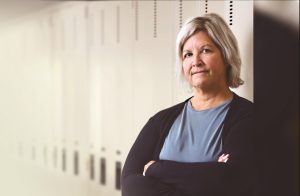By Kevin Spurgaitis
Mariam Tadesse was 12 years old when she fled her home country of Eritrea. Within a month of arriving in Canada, and while living in a Toronto refugee shelter, she showed symptoms of diabetes. At first, Mariam and her father were reluctant to seek medical assistance while awaiting interim health care coverage. The family then decided to visit a walk-in clinic, only to turn around because they could not afford treatment. Frail, fatigued and on the verge of a diabetic coma, Mariam finally sought help from the Toronto-based Canadian Centre for Refugee & Immigrant HealthCare (CCRIHC). There, volunteer physicians swiftly diagnosed her with childhood-onset diabetes and sent her to hospital, where she spent four days in an intensive care unit. The CCRIHC later lobbied the government to forgive Mariam’s $26,000 hospital bill.
Although Canada’s refugee health care program was improved in April 2016, one in four refugee children still find themselves in the same situation as Mariam, according to Canada’s refugee health care advocates. And while they wait to be eligible for sufficient health coverage, such newcomers—and their advocates—are asking why coming to Canada has become such a risk to their overall health.
The current situation
Today, two kinds of refugees are officially recognized in our country: Refugee claimants and resettled refugees, whether government assisted or privately sponsored. Both are eligible for limited, temporary health care benefits under the Interim Federal Health Program (IFHP) until they qualify for provincial or territorial health coverage. The problem is that the IFHP can be confusing, partly because of previous cutbacks to the program. Many professionals at walk-in clinics and pharmacies deny services to refugees that they believe are not covered by IFHP. In addition, in order to be reimbursed for their services and products, health care practitioners must register with the program—a process many have characterized as cumbersome and lengthy. And the time it takes for them to be paid by IFHP varies, with some practitioners waiting as long as 90 days.
In August 2018, the United Nations (UN) Human Rights Committee concluded that Canada is not providing adequate health care to some of its refugees, immigrants and temporary foreign workers. It called for a review of legislation “to ensure that irregular migrants have access to essential health care to prevent a reasonably foreseeable risk that can result in loss of life.” As part of its non-binding ruling, the UN committee also said that Canada needs to compensate Nell Toussaint, a 49-year-old Grenadian who developed serious health conditions but was denied access to medical treatment because of her immigrant status. Toussaint had held a number of temporary jobs since 1999 before applying to be a permanent resident in Canada. But the process was delayed because of her financial hardships and deteriorating health. In 2009, she applied for the IFHP, but her refugee claim was inactive; by then, she was living as an undocumented migrant. Without a health card or IFHP eligibility, Toussaint was denied blood tests and particular medical procedures because she could not afford to pay out of pocket.
Welcoming refugees
The irony, of course, is that Canada now leads the US in the number of refugees it resettles, according to new figures brought to light in a Maclean’s article by Robert Falconer, a Calgary-based researcher. We accommodated an estimated 28,000 refugees in 2018, while the US took in 24,000—the first time the Americans fell behind another country in the history of the UN refugee program.
Around the world, there are more than 300 million refugees and displaced migrants as a result of conflicts in countries such as Syria, Sudan and Myanmar. According to the UN High Commissioner for Refugees, that is the highest number since the UN began keeping records. In many cases, people flee countries where health care is limited and diseases such as tuberculosis are widespread. The fact that many are not eligible for public health insurance in their host countries further complicates matters. Although research into the poor health outcomes of refugees in Canada is incomplete, it is estimated that half a million adults and children in Ontario alone do not have access to proper health coverage because of their immigration status.
Filling the gaps
Meanwhile, groups such the CCRIHC are filling the gaps in the Canadian health care system. Since 1999, the volunteer-driven clinic has provided more than $1 million in medical and dental care to more than 1,400 refugees and immigrants each year, both new and undocumented—around a third of who are children and youth. An interdisciplinary team of 50 doctors, dentists, nurses, nurse practitioners, chiropractors, and community support workers treat everything from respiratory and infectious diseases to rashes and gastrointestinal problems. Having recorded more than 40,000 medical and dental visits, and treated 13,000 refugees and immigrants from more than 120 countries, the CCRIHC says that it has saved Canada’s health care system more than $20 million. That is enough to provide 150,000 patients with a family doctor each year.
Nevertheless, an influx of refugees and other newcomers seeking their medical care has presented challenges for the centre. Sumathy Rahunathan, the CCRIHC’s research lead, and clinical navigator, told the CBC in September 2018 that staff started noticing a “surge” in demand for their services toward the end of 2017. Although the federal government promised the City of Toronto $11 million to better accommodate refugees, Rahunathan said that the centre needs far more assistance than this one-time allocation.
Experts suggest that additional research is required to facilitate wide-scale policy initiatives around refugee health care in this country. At the national level, there are calls to establish an interdisciplinary working group. Its mandate would be to make evidence-based recommendations at the provincial and federal levels. But what is already clear to refugee health care advocates is that there is a need to increase capacity and relax enrolment criteria at community clinics, and to eliminate the three-month waiting period for health insurance in places that require it. In the meantime, they suggest that health care practitioners become better at explaining provincial or territorial rules, regulations and entitlements around health coverage to refugees and immigrants—and even help them acquire that coverage.
Along with being a safe haven for refugees, immigrants and sponsored persons, Canada has long been lauded for providing health care that is complete and universal. So perhaps it is high time for policymakers to re-examine the way we are treating some of our newcomers. Otherwise, the country will continue to deny people such as Mariam the fighting chance to stay healthy and to prosper in their new home. And what would be more ‘un-Canadian’ than that?
Kevin Spurgaitis is a Toronto-based writer














